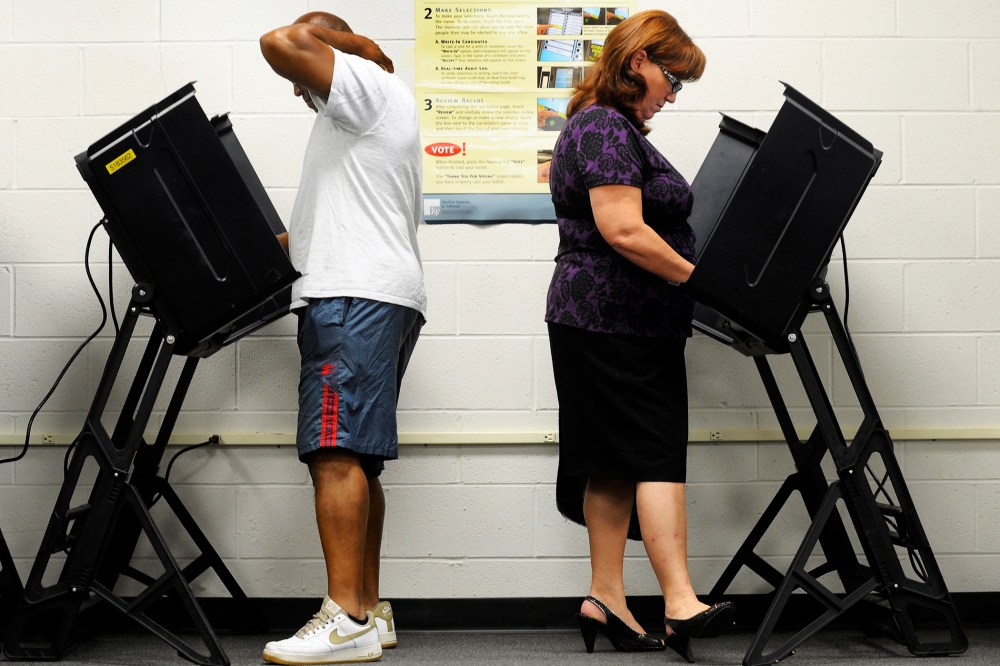North Carolina’s hotly contested midterm elections just got a little less voter-friendly.
U.S. District Court Judge Thomas D. Schroeder on Friday ruled that two provisions of North Carolina’s controversial voting law — which challengers argue infringe the democratic process — will remain in effect until the law goes to trial in 2015. The same judge, meanwhile, also struck a blow against the state, rejecting its request to avoid a full trial.
The ACLU and other civil rights groups are challenging North Carolina’s sweeping voting law, specifically taking aim at sections that eliminate a week of early voting and end same-day registration, claiming those provisions violate the U.S. Constitution and the Voting Rights Act of 1965 by placing an undue burden on the right to vote and discriminating against African-American voters.
Since the trial is not set to take place until the summer of 2015, the challengers sought a preliminary injunction from the court to stave off the law’s potentially harmful effects during the state’s upcoming midterm elections. But a federal judge on Friday denied the ACLU’s request, saying the law can remain in effect until the trial.
“This is a victory for North Carolina’s popular law that requires identification to vote,” said Bob Stephens, Chief Legal Counsel to North Carolina Gov. Patrick McCrory, in a statement, adding, “North Carolina is joining a majority of states in common sense protections that preserve the sanctity of the voting booth. Today’s ruling is just more evidence that this law is constitutional – as we have said from the very onset of this process.”











